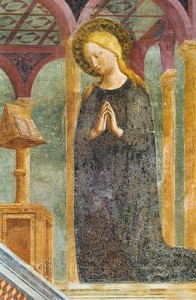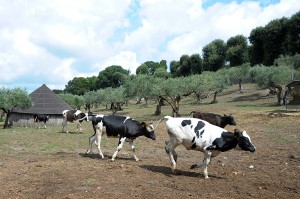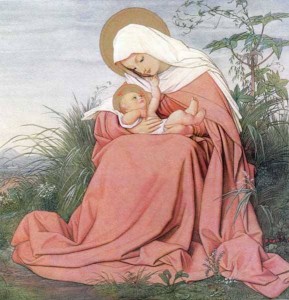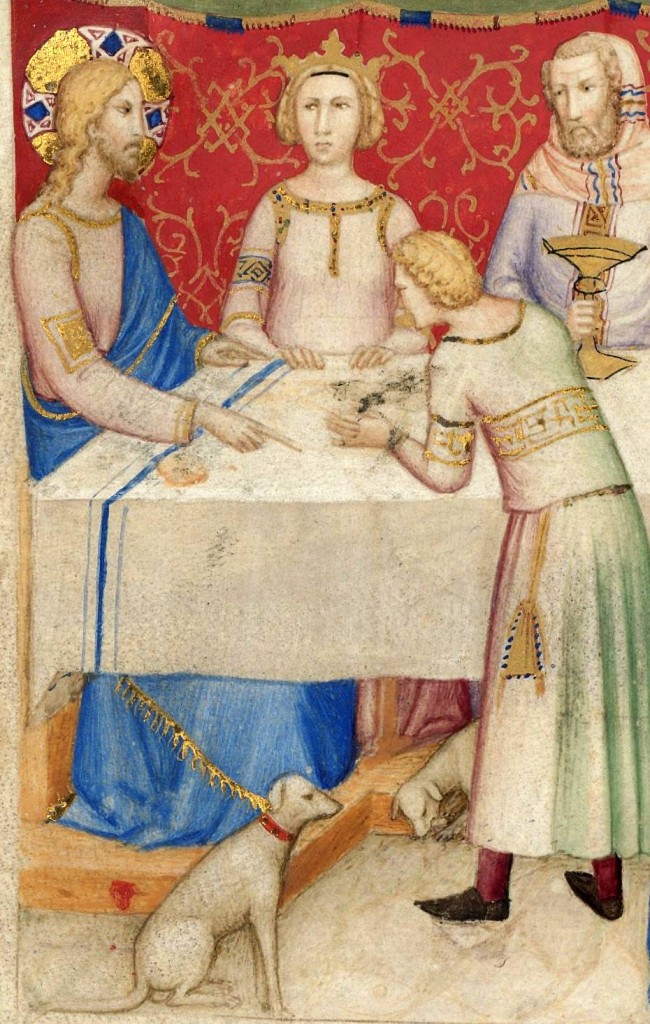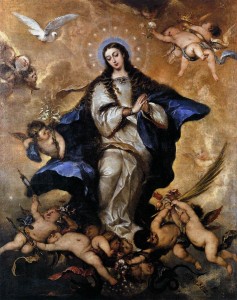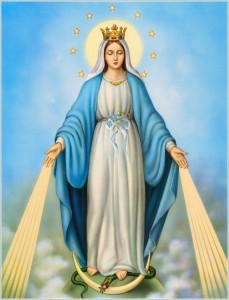 We know that Pope Francis has a devotion to the Mother of God. No doubt strongly influenced by his Argentinian/Italian and Jesuit background. In some ways he’s no different than most faithful Catholics who have a strong devotion to the Blessed Virgin.
We know that Pope Francis has a devotion to the Mother of God. No doubt strongly influenced by his Argentinian/Italian and Jesuit background. In some ways he’s no different than most faithful Catholics who have a strong devotion to the Blessed Virgin.
Francis has become a frequent papal visitor to the Basilica of Saint Mary Major; yesterday, he went to this basilica and prayed in front of the Marian image of Salus Populi Romani. Thereafter, the Holy Father went to Piazza di Spagna for the traditional act of veneration of the Immaculate Conception. Having made the Act of Veneration of the Immaculate Conception, Francis prayed a special prayer he composed. Here is what he prayed, and this ought to be our prayer, too:
Oh Mary, our Mother,
today the people of God in celebration
venerate the Immaculate,
always preserved from the contagion of sin.
Accept the gift I offer on behalf of the Church in Rome
and throughout the world.
Knowing that You, our Mother, are completely free from sin
gives us great comfort.
Knowing that evil has no power over You,
fills us with hope and fortitude
in the daily struggle that we must fulfill against the threats of the evil one.
But we are not alone in this struggle, we are not orphans, because Jesus,
before dying on the cross,has given You to us as a Mother.
We, therefore, despite being sinners, are your children, sons of the Immaculate,
called to the holiness that shines through You
by the grace of God from the beginning.
Animated by this hope,
we pray today for Your maternal protection for us, for our families,
for this city, for the whole world.
May the power of God’s love,
that preserved You from original sin,
through Your intercession, free humanity from every spiritual and material slavery,
and make us win, in hearts and in events, God’s plan of salvation.
May grace prevail in us, Your children, over
pride and we can become merciful
as our heavenly Father is merciful.
In this time that leads us
towards the feast of the Nativity of Jesus,
teach us to go against the tide:
to divest ourselves, to lower ourselves, to give ourselves, to listen, to be silent,
to decentralize ourselves,
to make room for the beauty of God, the source of true joy.
Oh Immaculate, Our Mother, pray for us!
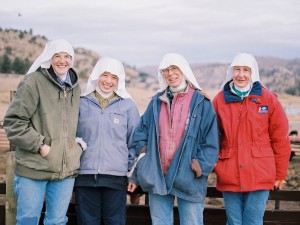 Benedictines historically live close to the land. Since the 6th century the Benedictines have also been pioneers in every field of study known to humanity. Here is a NPR story on the Benedictine nuns of the Abbey St Walburga (Virginia Dale, CO).
Benedictines historically live close to the land. Since the 6th century the Benedictines have also been pioneers in every field of study known to humanity. Here is a NPR story on the Benedictine nuns of the Abbey St Walburga (Virginia Dale, CO).